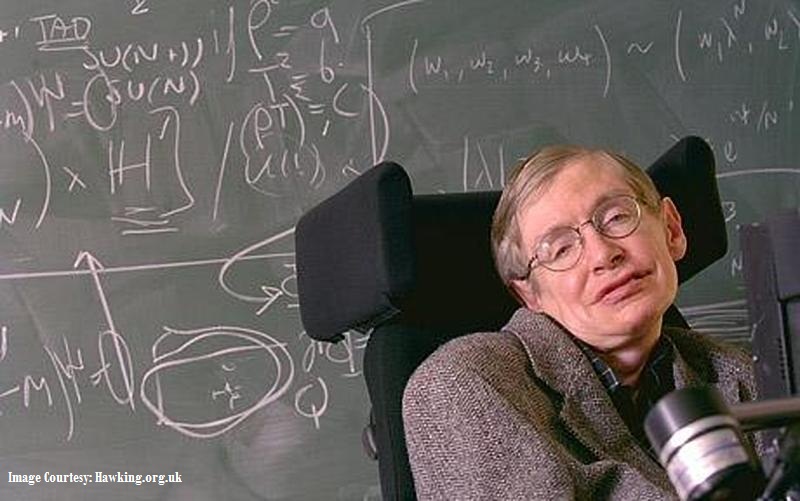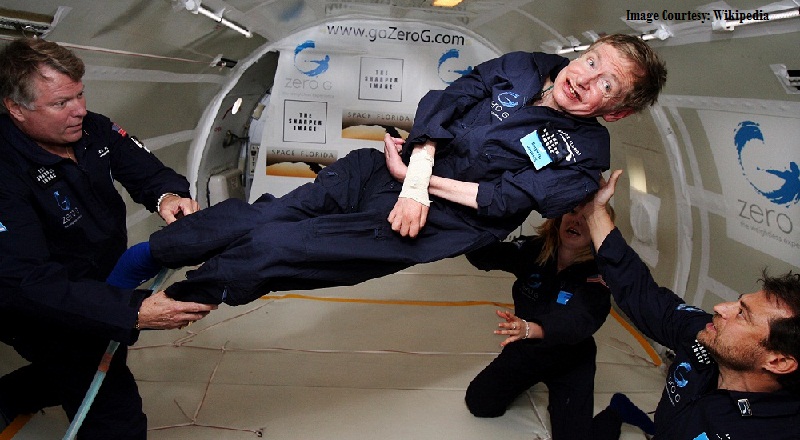- Posted On: 30 Apr 2018
- Posted By: Crescentek
12 Sept 2014
![]() (Ace scientist Stephen Hawking breathed his last on March 14, 2018: This post is in tribute to his memory)
(Ace scientist Stephen Hawking breathed his last on March 14, 2018: This post is in tribute to his memory)

Unbelievable, yet true, H.G. Well’s “The Time Machine” is still considered as one of the most striking Science Fiction novel ever written by anyone. “I’ve had a most amazing time….”So begins the Time Traveller’s astonishing firsthand account of his journey 800,000 years beyond his own era, along with the story that launched the author’s successful career, earning him reputation as the father of science fiction. To be brief, the author has created speculative fiction while dealing imaginative scientific concept, such as time travel.
However, British scientist Stephen Hawking has done just the reverse in his epoch making book A Brief History of Time where he has managed to describe scientific truth in fictional form.
Challenging the Big Bang Theory, the well accepted explanation about how the universe began the world famous physicist had asked “But what happened before the Big Bang” while providing the answer himself, saying “The boundary condition of the universe ….. is that it has no boundary. In other words, there is no time before time began as time was always there. It was just different.” He also told physicist Neil deGrasse Tyson that amid the almost infinitely small quantum form of the singularity before the Big Bang, time existed in a bent state. “It was distorted,” argued Hawking, “along another dimension – always getting fractionally closer to, but never becoming anything. Therefore, there never was a Big Bang that created something from nothing.”
It Had A Beginning About 15 Billion Years Ago
“All the evidence seems to indicate.” announced Hawking in one of his lectures, “that the universe has not existed forever, but that it had a beginning, about 15 billion years ago. There must have been a beginning,” he emphasized, “otherwise the universe would have been in a state of complete chaos, and everything would have been at the same temperature. Moreover, in an infinite and everlasting universe, every line of sight would have ended on the surface of a star. This would also mean that the night sky would have been as bright as the surface of the sun.” “The only way of circumventing this problem,” pronounced Hawking, “if, for some reason the stars did not shine before a certain time.”

But Things Were Different At That Time
“But things were different at that time”, observed Hawking, “the density would have been infinite. It would have been what is known as singularity when all the laws of physics would have broken down. This means that the state of the universe, after the Big Bang would not depend on anything that may have happened before, since the deterministic laws that govern the universe will break down in the Big Bang,” concluded the famed scientist.
How Others Had Viewed ‘TIME’
Before Galileo and Newton, it was assumed that Aristotle was right in saying that objects are essentially at rest until a force acts to set them in motion. Newton proved this to be wrong, using Galileo’s experiments to devise his Laws of Motion. Newton also developed his law of gravitation, which accurately described the motions of space objects. According to the Aristotelian tradition, events stay in the same place over a period of time. Newton’s laws proved that to be false, positing that each object in the universe is moving relative to others, and that it is impossible to assign an absolute resting position.
Absolute Time
Both Aristotle and Newton believed in absolute time, a concept independent of space. But this belief does not work for objects moving at or near the speed of light. The speed of light was first measured in 1676 by the Danish astronomer Ole Rømer, who observed that the time it took light to come from Jupiter’s moons varied depending on their distance from the earth. The speed of light was found to be very fast but finite. However, scientists found a problem when they tried to say that light always traveled at the same speed. The scientists imagined a substance called the ether to explain light’s absolute speed.
In ‘A Brief History of Time” Stephen Hawking has described in lucid prose about the structure, origin, development and ultimate fate of the universe, which among others, is the object of astronomy and contemporary physics. He has also touched on subjects like Space and Time, basic building blocks that make up the universe (such as the Quarks, synonymic to ‘elementary particles’) and the fundamental forces that govern it (such as Gravity). However, the beauty of the book lies in its way of dealing such complex topics in a language that anyone can understand and make out what the author has been trying to say. This incidentally may be considered as a great achievement on its own.